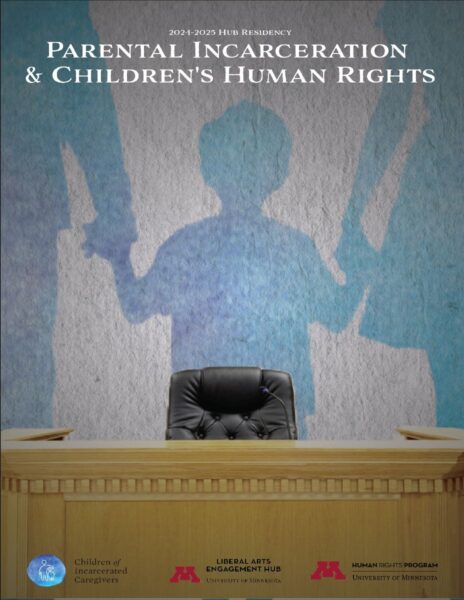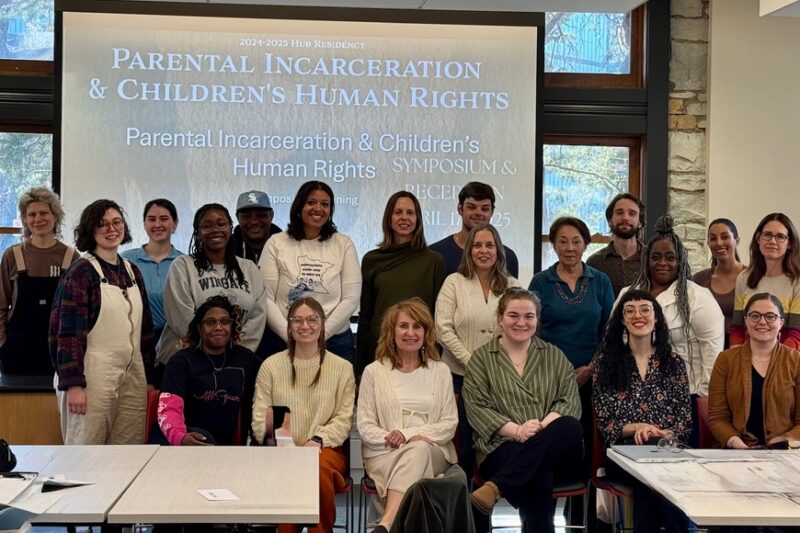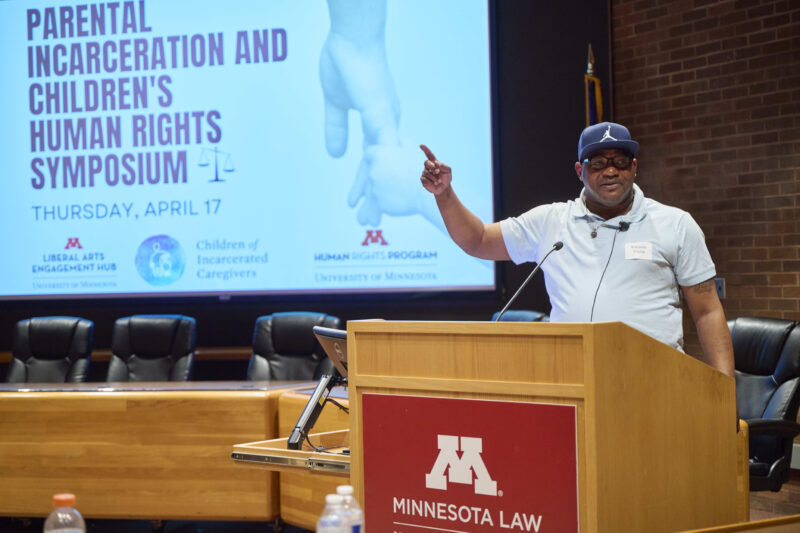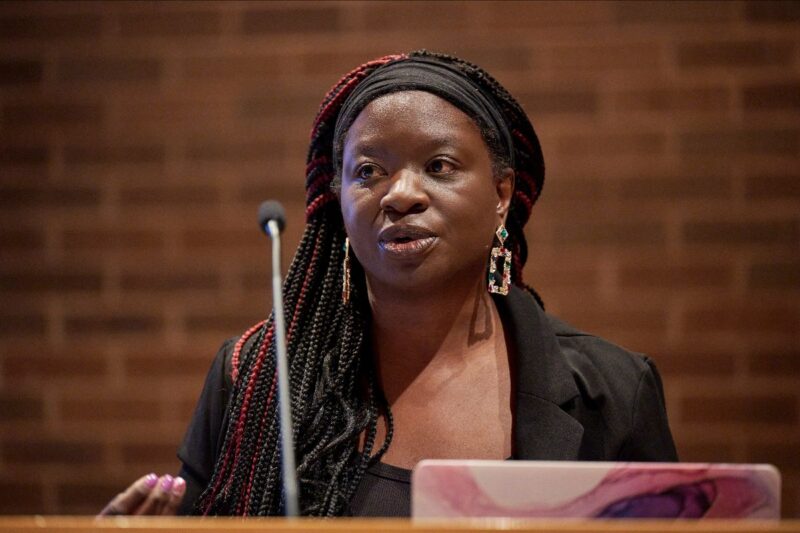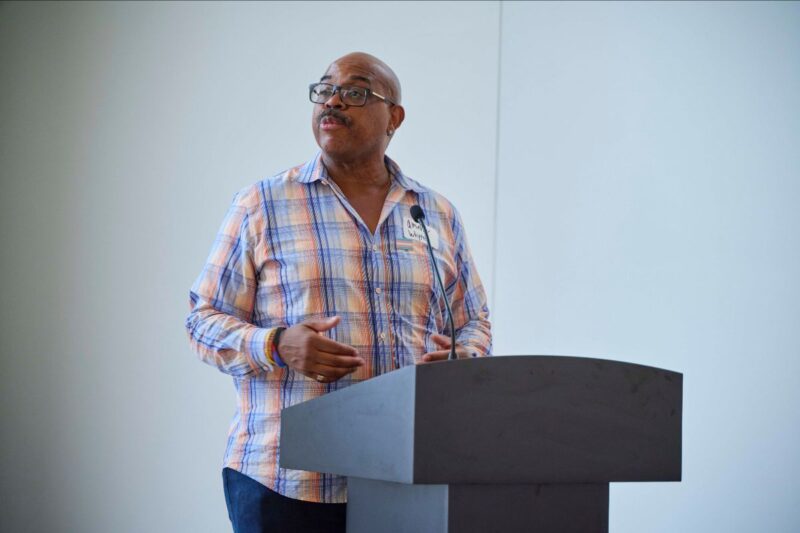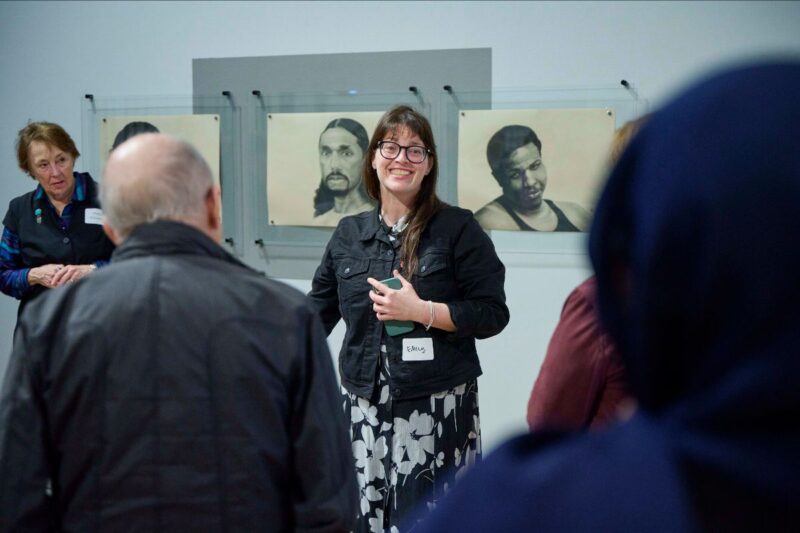One in six Minnesota children has experienced a parent’s incarceration. Under international law, judges should consider the best interests of these children when deciding whether to incarcerate a parent. From 2024-25, Children of Incarcerated Caregivers and the University of Minnesota’s Human Rights Program worked together on a dynamic, community-centered project to center the human rights of Minnesota children affected by parental incarceration.
In 2024, Children of Incarcerated Caregivers (CIC) and the University of Minnesota’s Human Rights Program (HRP) received a Hub Residency from the University of Minnesota’s Liberal Arts Engagement Hub. The Hub is a unique university space that fosters public engagement and civil society. Hub residencies support community-university collaborative projects that address important public issues through the arts, humanities, and social sciences.
With this Hub Residency, CIC and HRP formed the Parental Incarceration and Children’s Human Rights project. Our shared goal was to apply an international human rights lens to the issue of parental incarceration, advocating for policy change that protects the rights and best interests of children whose parents face incarceration. Our project brought together a diverse team of students, community members, and experts who collaborated over the past year—many of whom will continue this work in 2025 and beyond.
We encourage you to read “Doing Time on the Outside: Parental Incarceration and the Rights of the Child,” a piece about our Hub Residency by University of Minnesota student Regina Ramos-Francia Ylizaliturri, to learn more.
University of Minnesota Seminar
Our Hub Residency included an experiential learning course offered to graduate students, law students, and undergraduates at the University of Minnesota. The seminar was co-taught by CIC Board President Julie Matonich and HRP Director Carrie Walling, who volunteered their time as instructors. Throughout the 2024-2025 academic year, students examined international and domestic laws related to parental incarceration, researched programs that expand community-based alternatives to parental incarceration, and developed policy alternatives to parental incarceration.
Collaborative Workshops
In addition to the seminar, we convened a monthly workshop in which students worked with a Policy Team to discuss and analyze policy alternatives to parental incarceration. The Policy Team was made up of individuals with a wide range of expertise on the criminal legal system and parental incarceration, including professionals who work directly in the system, members of impacted communities, and individuals with lived experience. These workshops aimed to build community, identify possible gaps or problems in policy alternatives, and determine the most promising solutions.
Symposium
In April 2025, CIC & HRP co-hosted a day-long symposium at the University of Minnesota Law School to share the results of our work with the broader community. Over 150 people attended this event, contributing crucial feedback to guide our future work.
Throughout the day, experts, community leaders, people with lived experience, and students shared ideas about tangible ways to center the rights and well-being of children with parents in the criminal legal system. The symposium’s panels and breakout workshops featured promising interventions identified by our students and Policy Team, such as:
- Incorporating information about minor children into bail evaluations
- Creating a “Caregiver Court,” a parenting track within Minnesota’s specialty court system
- Using guardians ad litem in criminal proceedings to represent the best interests of children whose parents face incarceration
Dr. Ebony Ruhland presented the keynote speech, “‘I Wanna Talk to My Kids’: The Impacts of Parental Incarceration.” Her research focuses on the impact of criminal justice policies and practices on individuals, families, and communities.
In one panel, attendees heard from formerly incarcerated parents as well as an adult child impacted by parental incarceration in their youth.
Leading researcher Dr. Joshua Page also spoke about his forthcoming book, Legal Plunder: The Predatory Dimensions of Criminal Justice, as well as findings and recommendations from the recent MNJRC report he co-authored, Toward Safety, Liberty, and Equity: A Community-Centered Framework for Redesigning Minnesota’s Pretrial System.
Reception
Following the symposium, we gathered for a reception at the Weisman Art Museum. Dr. Amelious Whyte, the current Assistant Dean for Diversity, Equity, and Inclusion & Public Engagement and former Interim Director for the Liberal Arts Engagement Hub, spoke about the mission of the Hub.
Emily Baxter, founder of We Are All Criminals, led a guided tour of WAM’s SEEN exhibition, which she curated. SEEN featured currently incarcerated artists in collaboration with local artists, activists, and academics. Together, they explored issues of incarceration, isolation, healing, and coming home.
Looking Forward
Our work is far from complete. Over the next year, we plan to do the following:
- Develop and disseminate a series of outcomes documents that capture the learning and ideas developed in our first year of work
- Synthesize the information we’ve learned and the recommendations that have come out of the seminar and symposium
- Gather additional feedback from community members and stakeholders through a survey and community listening sessions
- Develop next steps, including a plan for future advocacy for our most viable proposal(s)
- Grow our community network and engage more university partners
We encourage you to stay updated about further developments with the Parental Incarceration & Children’s Human Rights project by following CIC’s LinkedIn.
If you would like to donate to support CIC and HRP as we further develop and advocate for policies that support the best interests of children impacted by parental incarceration, please click the here and write “Hub” when asked if you are donating as part of a specific initiative.
